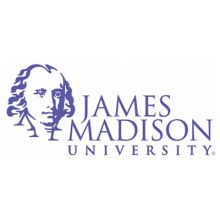The gradual retreat of the Covid pandemic has left US universities far from academic normalcy, with professors describing large cohorts of students numbed and ill prepared by their badly disjointed school experiences.
The phenomenon appears widespread, from large public universities to small minority-serving institutions, with school-leavers either missing altogether from college campuses or arriving well behind usual levels of proficiency in basic mathematics and English classes.
Even a top-ranked institution such as the University of California, Berkeley is not immune from seeing large numbers of struggling freshers, acknowledged Oliver O’Reilly, its vice-provost for undergraduate education.
“These challenges include preparation, time management, study skills, and timely completion of assignments,” said Professor O’Reilly, describing an internal assessment of faculty perspectives. That’s creating demand beyond Berkeley’s capacity, across the entire teaching staff, from professors down to teaching assistants, he said.
THE Campus spotlight: Tech solutions for the post-Covid campus
Nationwide data have been highlighting the problem. In its initial preliminary look at autumn 2022 enrolment figures, the National Student Clearinghouse Research Center said that recruitment was down 3.1 per cent at private four-year non-profit institutions and 2.4 per cent at public four-year campuses. That has left US higher education with a running total of more than 2 million “missing freshmen” who would have been expected to start college during the pandemic but have not yet done so.
Among the students who have arrived at college, figures released by the government’s National Assessment of Educational Progress show that average US school reading scores hit a three-decade low this year, while maths scores had their largest-ever declines.
Even at a top-ranked institution such as Berkeley, fewer than usual incoming students are arriving on campus having taken standardised tests and the Advanced Placement courses that offer students college-level credit while still in high school.
Demand is “at a record high” for introductory maths classes and reading and composition courses, Professor O’Reilly said. “We are adding as many sections of these introductory courses as resources permit, but we are over-enrolled, resource-constrained, and the demand is beyond capacity,” he said.
Such concerns led Berkeley to conduct a survey of its teaching staff, seeking comparisons between their pandemic-era experiences and the pre-pandemic period. Of the more than 200 who responded, most said that in the past year their students have been worse at attending lectures, turning in assignments and interacting with peers. Lecturers also described students as showing lower levels of resilience, initiative, organisation, time management and empathy, and performing worse in examinations and classroom discussions.
The fact that such troubles are so evident even outside the usual disadvantaged corners of higher education suggests how dramatically Covid transformed the sector, said Benjamin Selznick, associate professor of strategic leadership studies at James Madison University. “Students who might have historically been reasonably well prepared are all of a sudden now on that side of being reasonably unprepared,” Dr Selznick said. “And students who were reasonably unprepared might be very unprepared.”
And yet those kinds of divisions do remain. The surveyed Berkeley scholars did note that along with the abundant problems, they have also had large numbers of students doing no worse or even better during the Covid period.
That should be expected, given the wide resource inequities across US schools, said Jack Schneider, associate professor of education at the University of Massachusetts Lowell. “During that time,” he said of Covid lockdowns, “the most privileged students had access to resources that ensured learning would be minimally disrupted, and in some cases received even more personalised supports than they would have in ordinary circumstances. Other students had very different experiences, with the typical headwinds of inequality blowing at gale force.”
Register to continue
Why register?
- Registration is free and only takes a moment
- Once registered, you can read 3 articles a month
- Sign up for our newsletter
Subscribe
Or subscribe for unlimited access to:
- Unlimited access to news, views, insights & reviews
- Digital editions
- Digital access to THE’s university and college rankings analysis
Already registered or a current subscriber? Login










